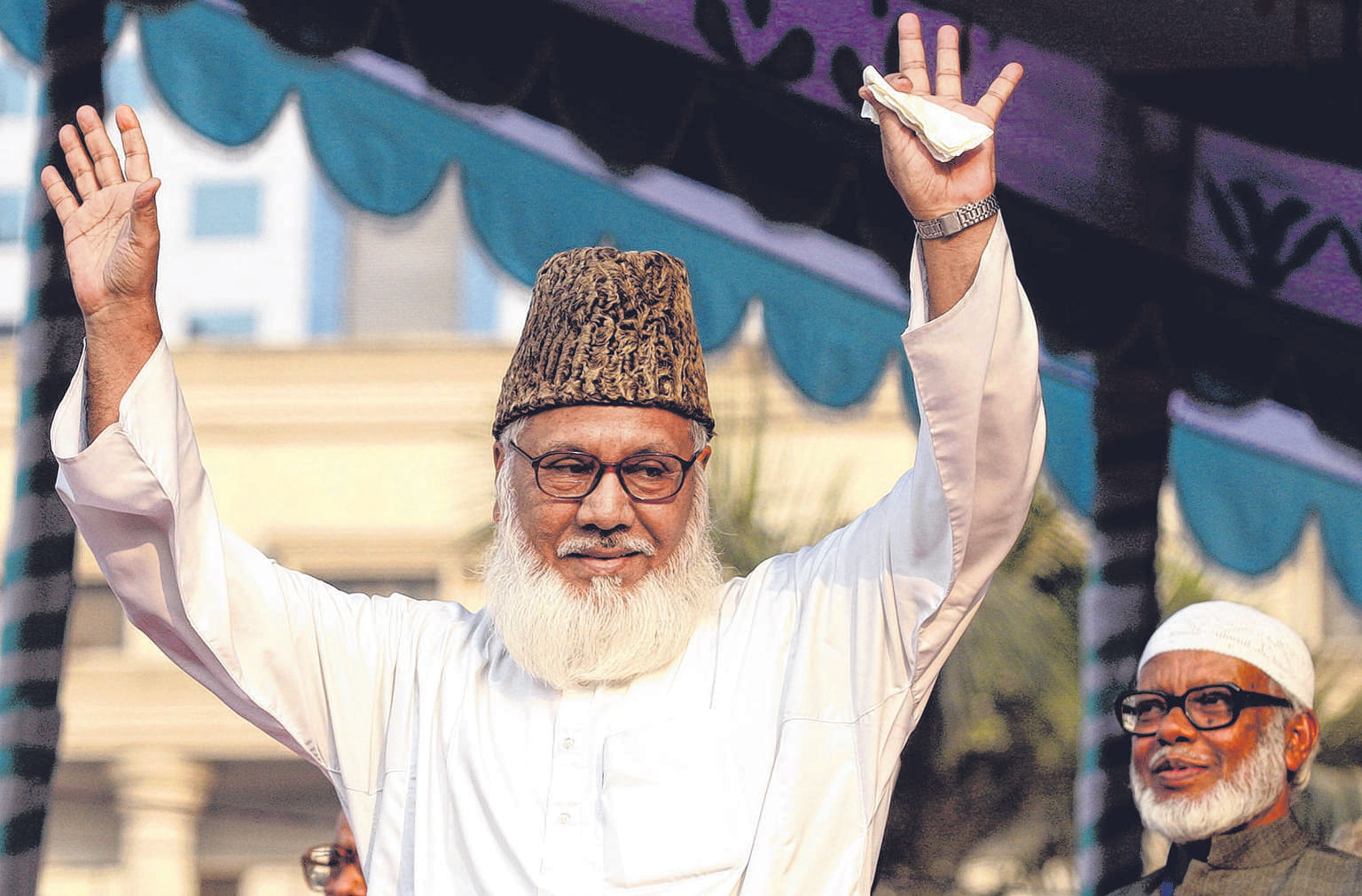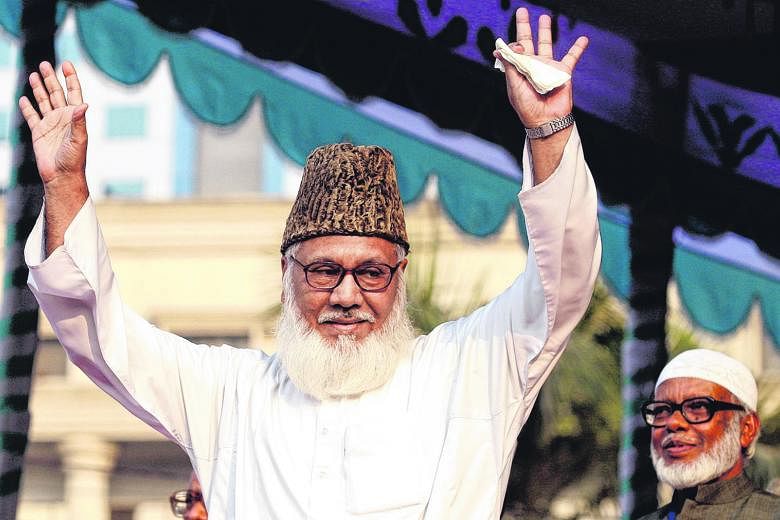A leader of the Jamaat-e-Islami opposition party in Bangladesh has been executed for war crimes, sparking clashes with his supporters and fears that the move could lead to even more vicious attacks on intellectuals and liberals.
Motiur Rahman Nizami was hanged at Dhaka Central Jail yesterday after Bangladesh's Supreme Court upheld a 2014 verdict by a war crimes tribunal that found him guilty on eight charges, including genocide, torture and rape back during the 1971 Liberation war with Pakistan.
Nizami, 73, a minister under the previous government of Khaleda Zia, was accused at the time of setting up Al Badr Bahini, a militia that helped the Pakistani army during the war for independence. The opposition leader had refused to seek a presidential pardon but denied the charges.
Just hours after his execution, police charged Zia herself with masterminding arson attacks during deadly anti-government protests last year. The two-time prime minister and 27 officials from her Bangladesh Nationalist Party (BNP) were charged with crimes involving the fire-bombing of two buses in the capital Dhaka.
Nizami was the fifth opposition member, and fourth Jamaat leader, to be hanged for atrocities during the 1971 war. The Bangladesh government says three million people died in the war between pro-independence forces and the Pakistani Army backed by local groups. But it was not until 2009 that Prime Minister Sheikh Hasina set up the International Crimes Tribunal to try wartime cases, a long-time demand by victims and their families.
Similar judgments have triggered violent protests in the past. This time, reports said Jamaat supporters clashed with police in the Rajshahi area, leading to the arrests of nearly a dozen people. In the Chittagong area, Jamaat supporters clashed with political rivals. Still locals said it was not yet as bad as the violence sparked by earlier executions. Security forces remained on alert as the Jamaat and its supporters held prayer meetings across the country.

"Yes, in the city, there was violence in some areas and in the northern parts. But the kind of reactions we witnessed earlier, that is not taking place," said Dr Muhammad Mizanuddin, vice-chancellor of Rajshahi University. " The roads were busy, streets, markets, offices and educational institutes were all functioning not just in Dhaka but all over the country. So people are not giving the kind of response the Jamaat-e-Islami is expecting."
Bangladesh, a Muslim-majority country of 160 million people, prides itself on being a secular country but has seen the recent rise of religious fundamentalism. Far-right and radical elements angered over the executions have murdered more than a dozen secular writers, publishers, religious minorities and foreign nationals.
In April, Singapore detained eight Bangladeshi men under the Internal Security Act for planning to stage terror attacks back home. The Singapore Ministry of Home Affairs in a statement last week said several of the men may be liable for prosecution for terrorism financing.
Late last year, Singapore deported 27 radicalised Bangladeshi workers, who were part of a religious study group, after they were found to possess extremist material.
Analysts said that while Nizami's hanging brought closure for families of the victims of the 1971 war, it also brought uncertainty.
"Some are welcoming it, others are opposed to it," said former Bangladeshi diplomat Tariq Karim. "This is a complex situation and a tough battle is being fought (against radical elements) on different fronts."
Security analyst Md Abdur Rashid, executive director of the Institute of Conflict, Law and Development Studies in Dhaka, said isolated incidents could take place.
Still Amnesty International said the execution "follows a flawed process". Human Rights Watch noted that Nizami was allowed to call only four witnesses and not allowed to challenge prosecution witnesses.
But Bangladeshi Home Affairs minister Asaduzzaman Khan told reporters: "We've been waiting for this day."


